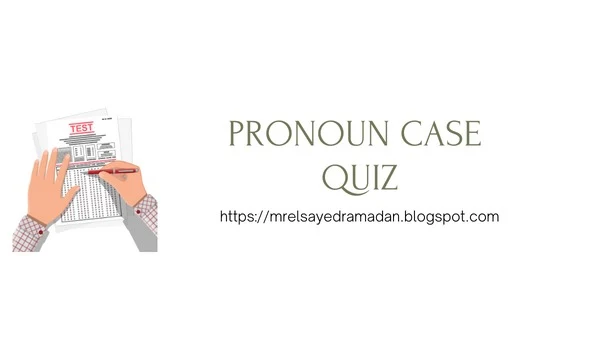Pronoun Case Quiz
"Welcome to our academic blog where we delve into the intricacies of language and its implications on standardized testing. Today, we will be focusing on the topic of pronoun case and its significance in the context of tests such as the SAT, ACT, EST, and the digital SAT. Join us as we explore the fundamental principles of pronoun case and its usage, and test your understanding with our comprehensive quiz."
1/8
The challenge problems were much easier for Alexa and Jill than they were for Julian and I.
Explanation: Since the underlined phrase is the object of the preposition of, it must take the objective case, as in choice C.
2/8
Since our flight leaves on Saturday, it might be difficult for him and me to stay for the entire conference.
Explanation: As much as most people want to “correct” this sentence, perhaps by changing him and me to us (which would actually make the reference less specific), the original phrasing is correct. This phrase serves as the object of the pronoun for, and therefore both pronouns must take the objective case: him and me. Notice that this is clearer to see when we isolate each element: it is perfectly correct to say it might be difficult for him to stay or it might be difficult for me to stay, therefore it is also acceptable to say it might be difficult for him and me to stay. (Some may object and claim that this phrase serves as the subject of the verb stay, and therefore should take the subjective case. This is incorrect, because to stay is an infinitive, not a conjugated verb, so it takes no grammatical subject.)
3/8
There really is no point in us delaying this decision any longer.
Explanation: Here, choice A may seem correct because the pronoun us is the object of the preposition in, right? No: the object of the preposition is delaying. (What is there no point in? Us, or the delaying?) Therefore, the pronoun must be a modifier of the gerund delaying and should take the possessive form, our.
4/8
If we are going to resolve this matter, you and me are going to have to make some compromises.
Explanation: The underlined phrase is the subject of the verb are, and therefore the pronouns must take the subject case: you and I.
5/8
Although we haven’t seen each other in years, Justine and myself have always been closest friends.
Explanation: The underlined pronoun is part of the subject of the verb have always been, and therefore must take the subjective case, I.
6/8
Us Giants fans have suffered through our share of disappointing defeats.
Explanation: The underlined phrase represents the subject of the verb have suffered, and therefore the verb must take the subjective case, we. The phrase Giants fans serves as an appositive modifier to the subject, and therefore must takes the form of a noun phrase, as in choice D.
7/8
The owner of the restaurant offered my wife and me a complimentary
Explanation: The original phrasing is correct because the phrase my wife and me serves as the indirect object of the verb offered, and therefore must take the objective case.
8/8
Gina will be spending the night at a friend of her’s house.
Explanation: The original phrasing is incorrect because her’s is not a valid word. The two third person singular feminine possessive pronouns in English are her (adj) and hers (n): her’s is not an acceptable construction. Choices B and D are incorrect because the context requires a possessive. Choice C provides a correct use of the possessive.
Result:

